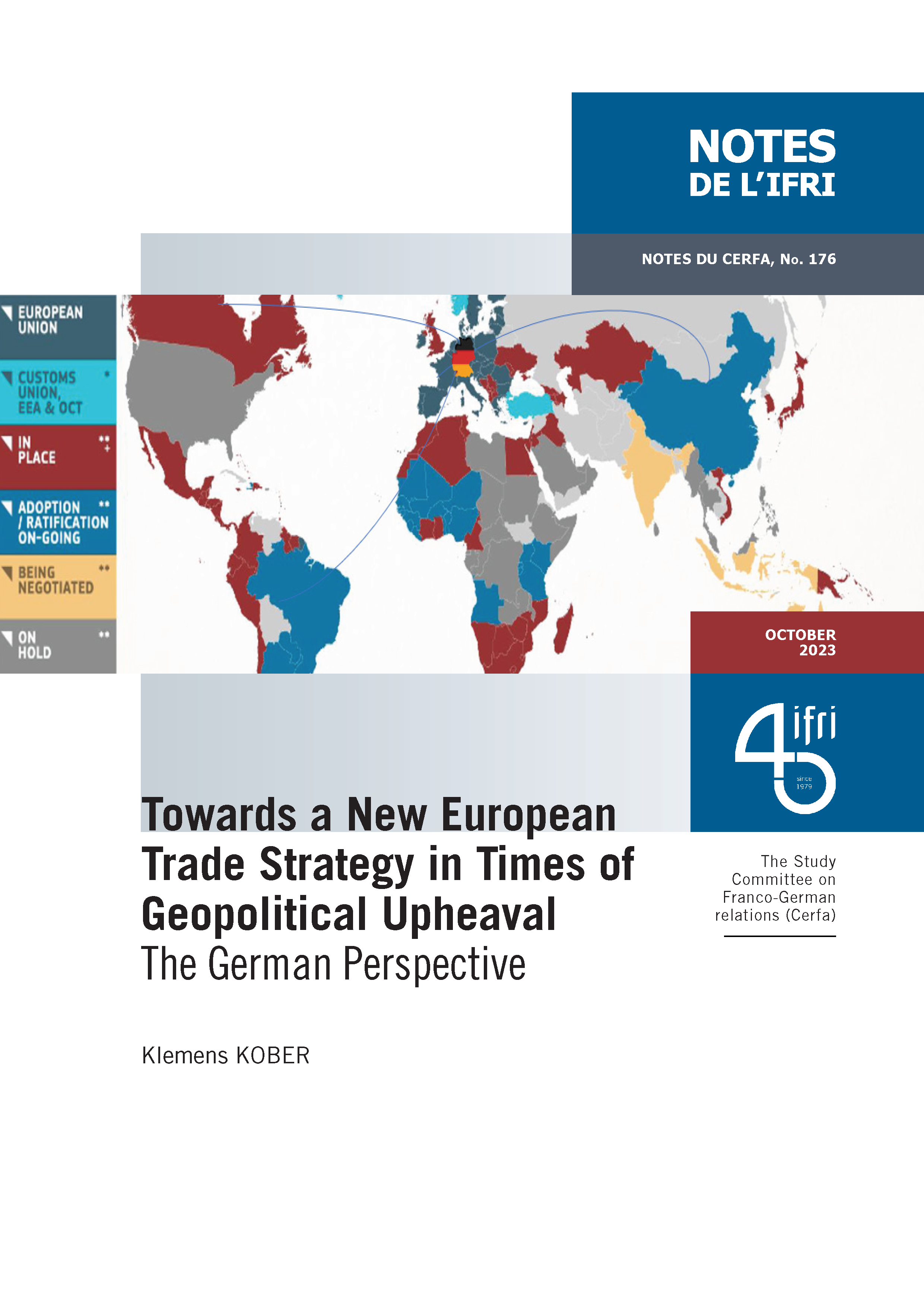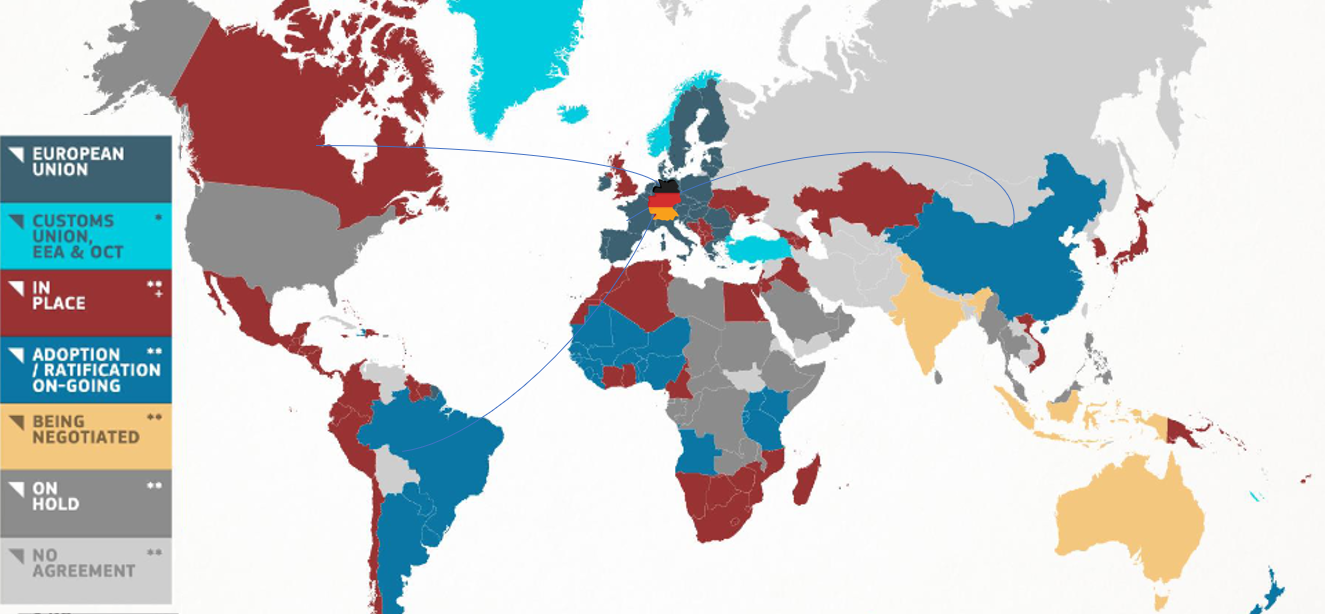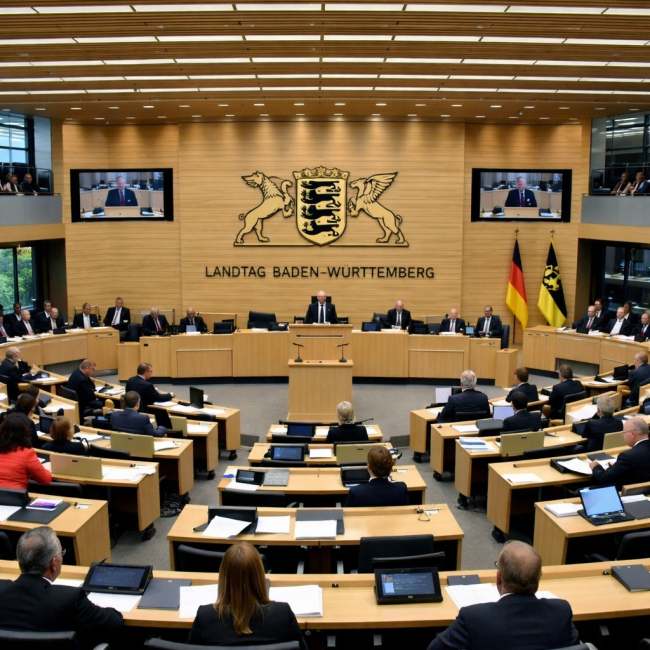Towards a New European Trade Strategy in Times of Geopolitical Upheaval: The German Perspective

As one of the most successful trading blocs, the EU sees itself confronted with the erosion of the global rules-based trading system and trade becoming increasingly weaponized.

The ongoing US-China decoupling and the Russian war in Ukraine recently reinforced the debate about European sovereignty and economic security with wide-ranging consequences for the EU’s economic model and its trade relations with third countries. Recalibrating the degree of the EU’s economic openness involves new approaches regarding multilateralism, bilateral trade agreements and autonomous trade instruments.
This paper looks at how Germany as an internationally highly interconnected country is directly impacted by all these developments and thus tries to both adapt its own position and help shape a new European trade strategy. This will be of high relevance for both the new European Commission and European Parliament after the upcoming European elections in 2024.
Klemens Kober is Director Trade Policy, EU Customs, Transatlantic Relations at the German Chamber of Commerce and Industry (DIHK) as well as EU-representative of the Association of the German Trade Fair Industry (AUMA).
The views expressed in this paper are those of the author only.
>> >> See also the publication by Marie Krpata and Ana Helena Palermo: available in French and German (pdf):

Available in:
Themes and regions
ISBN / ISSN
Share
Download the full analysis
This page contains only a summary of our work. If you would like to have access to all the information from our research on the subject, you can download the full version in PDF format.
Towards a New European Trade Strategy in Times of Geopolitical Upheaval: The German Perspective
Related centers and programs
Discover our other research centers and programsFind out more
Discover all our analysesThe 2026 State Elections in Baden-Württemberg: First Test For Chancellor Merz's Federal Government?
The state election in Baden-Wuerttemberg in March 2026 will be the first major test of public opinion for Chancellor Friedrich Merz's federal government. At the same time, Baden-Wuerttemberg is one of the federal states that—as an important location for the German automotive industry and its suppliers—is particularly affected by the transformation policy driven by climate change and the international conflict constellation.
Bundeswehr: From Zeitenwende (historic turning point) to Epochenbruch (epochal shift)
The Zeitenwende (historic turning point) announced by Olaf Scholz on February 27, 2022, is shifting into high gear. Financially supported by the March 2025 reform of Germany’s “debt break” and backed by a broad political and societal consensus to strengthen and modernize the Bundeswehr, Germany's military capabilities are set to rapidly increase over the coming years. Expected to assume a central role in the defense of the European continent in the context of changing transatlantic relations, Berlin’s military-political position on the continent is being radically transformed.
Merz’ European Policy-making: The End of the ‘German Vote’?
Friedrich Merz’s European ambition is to turn Germany, long seen as hesitant into a leading actor within the European Union (EU). To that end, he has pledged to end the “German vote,” a phenomenon that epitomizes the paradox of a country both indispensable and frequently absent from European decision-making.

Securing critical raw material (CRM) value chains – a prerequisite for Europe’s technological resilience
At the heart of economic security, technological resilience is a backbone of the European Union’s (EU) competitiveness. The EU’s energy and digital transitions depend on critical raw materials (CRM).









